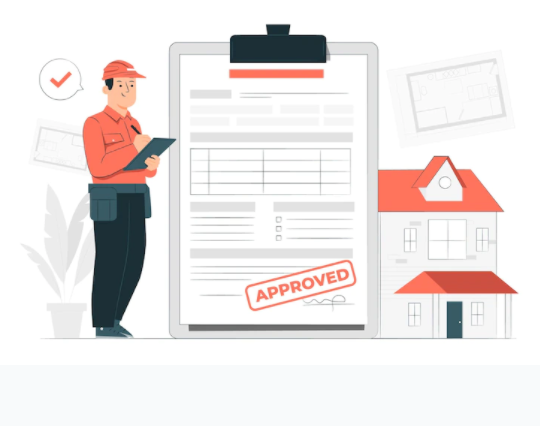The Certificate of Occupancy is the most important evidence of title for ownership of land in Nigeria. For a person or business to successfully establish ownership or acquire land or landed property, such an individual will have to show a document that indicates ownership.

The following are title documents a person can possess to show ownership of land or landed properties:
- Assent from the state government
- Certificate of Occupancy
- Court vesting order or certificate of purchase
- Deed of assignment or conveyance
- Deed of legal mortgage
- Deed of Gift
- Right of Occupancy
What is the meaning of a Certificate of Occupancy?
This is a certificate that says a building or land meets the laws and regulations of the state. The certificate of Occupancy is the most popular evidence of title. This is because it is statutorily provided for and issued by the Government. Also, financial institutions regard the C of O as a reliable form of collateral and have a preference for this over other land documents.
It is important to note that the documents and process required for the issuance of a Certificate of Occupancy to a statutory right of occupancy holder by the State Government differ from state to state. In this article, we consider the process for obtaining a C of O in Lagos State.
How do you get a Certificate of Occupancy in Lagos State?
- File an application to obtain the land information from the Surveyor General’s office at Alausa. This process usually costs between N10,000 – N12,000.
- Purchase of a private certificate of occupancy application form.
- The application form is submitted with the above-mentioned documents.
- A publication is then made, giving room to any person who wants to object to the application. The objection period is 21 days as this usually costs N10,000.
- The next step is the site inspection and report conducted by the Land Use Allocation Committee. A report is made which is used in processing the issuance of the Certificate of Occupancy.
- Certificate of Occupancy is then drafted, typed, and submitted for a recommendation for the execution of the Certificate of Occupancy (by the Executive Secretary, Land Use Allocation Committee, Senior Special Assistant Lands, and Permanent Secretary Lands).
- Execution of the Certificate of Occupancy (by the Governor)
- The Certificate of Occupancy is duly stamped by the Commissioner for Stamp Duties and registered at the registry.
- The duly executed and registered Certificate of Occupancy can be picked up from the Land Use Allocation Committee collection office.
How much does it cost to get a Certificate of Occupancy in Nigeria?
There are 36 states in Nigeria and so the cost of obtaining the C of O varies in each state. There are administrative fees to be paid when applying for a C of O in Lagos, which sometimes change from time to time.
Also, the cost of obtaining a Certificate of Occupancy varies depending on the size of the land. The cost of obtaining C of O for a plot of land will cost more than N400,000 excluding the charge of tax.
Requirements of Certificate of Occupancy
An applicant who is a statutory right of occupancy holder is expected to duly complete an application form and provide the following documents at the point of applying for a C of O in Lagos:
- Land information certificate.
- Receipt for land information fee.
- Receipt for application form
- Publication/inspection fee.
- Capital contribution (to be calculated based on the size and location of land).
- Land purchase receipt/agreement (duly stamped).
- Copy of current tax clearance certificate (individuals).
- Copy of N100 development levy receipt.
- Site location sketch.
- Four passport photographs of the applicant with a white background.
- Copy of approved building plan (if developed).
- Copy of tenement rate receipt (if occupied) or Land Use Charge.
- Cover letter addressed to the Executive Secretary, Land Use Allocation Committee (LUAC), stating all documents attached, as above, and typed with the applicant’s address.
Is Certificate of Occupancy necessary?
Yes, it is! The certificate of Occupancy helps to ascertain the owner of a plot of land or property and also prevents multiple claims of the land. Obtaining a C of O helps prevent the government from confiscating the land and can also improve or increase the value of the land.
Electronic Certificate of Occupancy
In 2017, the Lagos state government commenced with the issuance of an Electronic Certificate of Occupancy. This is in a bid to ease the stress of acquiring several documents for property bought in Lagos State.
The objective of the project is to establish a fully automated and computerized method for issuing C-of-O in Lagos and reduce the bulk of documents required in the process of land transactions. This method will also save buyers from fraudulent sellers such that upon inputting the C of O number on a computer system, all existing transactions that have been carried out on the said property will be provided, hence the buyer will know if the property is encumbered or not.
Sidebrief
Sidebrief is a RegTech startup that makes business registration and compliance easy for founders, entrepreneurs, and business owners across Africa by removing lengthy paperwork, complexity, and hidden fees. We provide the tools for founders to start and scale businesses across borders from a single interface.
